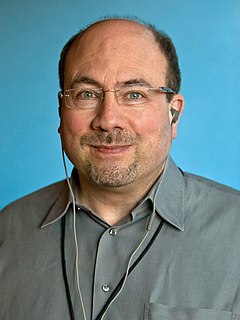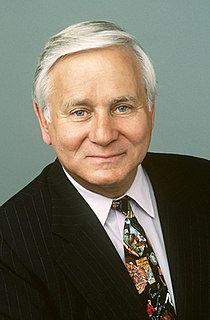A Quote by Robert Waterman McChesney
Very rarely are you going to see the large shareholder or CEO of a corporation march into a newsroom and say, "Cover this story, don't cover that." It's a much more subtle process. The professional code adapts, but what we try to see, is how commercial and corporate pressure shape both the professional code and the sorts of things that are considered legitimate journalism and illegitimate journalism.
Related Quotes
A big part of my book deals with the caliber of journalism. Our journalism in general is deplorable, and on elections in particular it's very ineffectual. There are a lot of problems, a lot of them having to do with to problems within the professional code of journalism, which defines its role as the regurgitation of what people in power say. Another big problem is that we allow people with money to basically buy what's talked about in campaigns through running TV ads.
Anyone who does investigative journalism is not in it for the money. Investigative journalism by nature is the most work intensive kind of journalism you can take on. That's why you see less and less investigative journalism at newspapers and magazines. No matter what you're paid for it, you put in so many man-hours it's one of the least lucrative aspects of journalism you can take on.
I got in journalism for any number of reasons, not least because it's so much fun. Journalism should be in the business of putting pressure on power, finding out the truth, of shining a light on injustice, of, when appropriate, being amusing and entertaining - it's a complicated and varied beast, journalism.
There is a danger in our modern practice of using embedded journalism. As there is less and less money available for journalism to uphold its independence, there is a temptation for people to take short cuts. If this army or that army or this corporation is willing to pay for your flight or your accommodation, then it's much more difficult to tell what the real story might be. I do have a concern about that.
A reckoning is coming on the state of the internet journalism, because right now, the way it's set up, there is so much room for libel to squeak through that you're going to see...they're going to rewrite the rule book on journalism very soon. They have to, because the bloggers are getting away with so much rumor-mongering about public officials and even private figures because they don't have editors and they don't have fact checkers and they don't have lawyers. There is going to be a price to pay somewhere down the line.
My job is to cover the hell out of the story, very aggressively. The real place to be courageous if you're a news organization is where you put your people to cover the story. It's making sure that you have people going to Baghdad. It's making sure that you figure out how to cover the war in Afghanistan. While the journalist in me completely stands with them, the editor of the New York Times in me thinks my job is to figure out what the hell happened and cover the hell out of it, and that's more important than some symbolic drawing on the front page.
First of all, as a professional, you can run around saying "artists, schmartists" as much as you want. But I'm a professional, so if somebody hires me for something, I'm going to bring my best to it. They've hired me, I'm professional, I show up on time, I do my job. That's what we're doing. So in that sense, it's always both things.

































